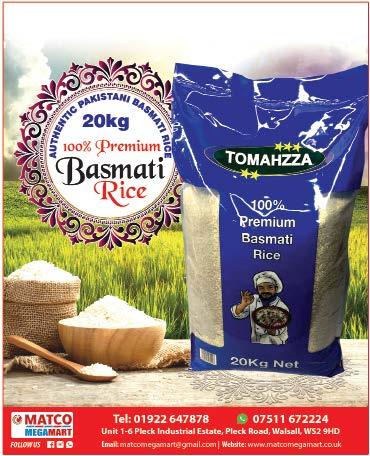
2 minute read
BENEFITS OF FASTING IN RAMADAN:
Spiritual benefits
1. Increases Taqwa
Advertisement
Taqwa is an Islamic phrase that refers to being aware of Allah and the truth and “piety and dread of God”. The term frequently appears in the holy book of the Quran. It bears the deep sense of being cautious over one’s own life and actions, as the angels are constantly on the watch. Additionally, fasting enhances the ability to be mindful of Allah and avoid unintentional offenses against the ways shown by Him. As a result, people lead on the path away from sins and wrong deeds.
2. Fetches greater rewards
All able Muslims are required to fast during Ramadan. It is said that Allah repays the fasting Muslims with great rewards and blessings. Each hour of fasting brings people closer to meeting Allah in the next life. But one should not fast for the gifts; instead, one should focus on its significance and value.
3. Leads to paradise and prevents Hellfire
Only those who fast during Ramadan will be allowed to enter paradise through the Ar-Rayyan gate on the Day of Resurrection. The virtue motivates people to increase their voluntary fasts while preparing for Ramadan. According to Muslim scholars, even a single day of fasting takes an individual away from Hellfire towards Jannah.
Health benefits
1. Protection from obesity and chronic diseases

Fasting throughout Ramadan may assist in preventing obesity and other chronic diseases such as diabetes. Ramadan fasting requires abstaining from the consumption of food and water between sunrise and sunset. Hence, it enhances the levels of proteins providing insulin resistance. It also offers protection against the hazards of a fat and sugar-rich diet.
2. Lowering cholesterol & improving blood sugar level

As Ramadan Fasting stimulates the lipid profile, it lowers blood cholesterol. Consequently, it prevents heart attacks, strokes, and other disorders. Also, if one maintains a healthy diet after Ramadan, individuals will retain the newly reduced cholesterol level.
3. Improved digestive system
Observing Ramadan and fasting positively impacts one lifestyle and digestive system. A human body naturally detoxifies after a month of flushing out of the toxins in the body. Further, it balances the heat generation and acidity levels in the human stomach.
Scientific benefits
1. Reduces stress
Fasting throughout the holy month of Ramadan is one of Islam’s most essential commandments. Muslims fast for 12-14 hours each day during Ramadan. They get up early for prayers, eat before sunrise, sleep later, and eat substantial meals after dusk to replenish their energy and fluid stores. Due to this, eating habits, sleep length and sleep pattern change in a constructive way. Fasting throughout the holy month of Ramadan improves mental health by lowering depression, anxiety, and stress levels.
2. Prevents cancer
Many research has been released in the last few years suggesting that Ramadan Fasting can lower health risk factors. It can also reverse the symptoms of severe health illnesses such as cancer. According to the research, this could be attributed to reduced glucose synthesis in the blood, balanced nutritional intake, and increased generation of tumor-killing cells.

3. Assists in Alzheimer
There are few therapeutic choices for those who develop Alzheimer’s, which causes everworsening cognitive and behavioral issues. Fasting is a therapy option that is rapidly gaining traction outside of the domain of pharmaceuticals and treatments. Ramadan Fasting, commonly promoted as a weight-loss approach, has been demonstrated in research to significantly relieve Alzheimer’s symptoms and decline in slow cognitive development in rats.









